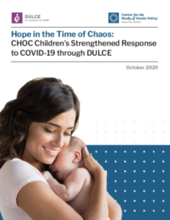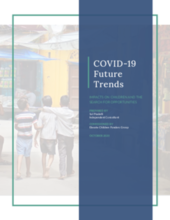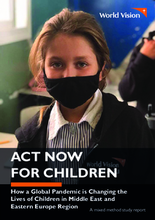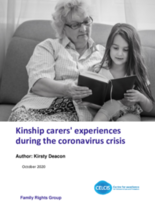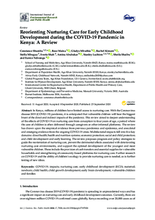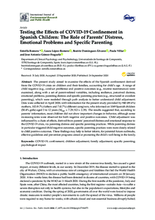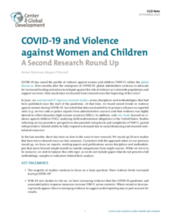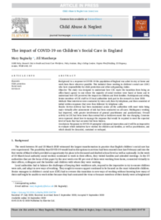This section includes resources on the response to the COVID-19 pandemic as it relates to child protection and children's care.
News on COVID-19 and Children's Care
Webinars and Events on COVID-19 Response
Displaying 231 - 240 of 756
This brief demonstrates the power of Developmental Understanding and Legal Collaboration for Everyone (DULCE) - a universal, evidence-based pediatric care innovation that addresses the social determinants of health and supports early relational health for families with infants from birth to six months - in addressing the critical concrete needs of families with newborns during the COVID-19 pandemic.
In attempts to delineate the future impacts on today's children, this paper analyses the COVID-19 crisis as a dynamic phenomenon that shapes children's lives well into adulthood, with age and gender considered key influencing factors. It examines the impacts from previous crises and the available data to build prudent assumptions about the present situation and outlines four scenarios which provide opportunities to identify potential levers for positive change.
This research explores the stress children in World Vision programmes in the Middle East and Eastern Europe region are under due to COVID-19.
A survey was administered to develop a better understanding of the experiences of kinship care households in the UK as a result of the Coronavirus crisis, and what urgent steps could be taken by Government, local authorities and other agencies to help. This supplementary report provides an in-depth analysis of the kinship carers in Scotland and provides the legal context to influence national and local kinship care policies, practices and services of local authorities and other public agencies.
This article focuses on examining the impact of the COVID-19 pandemic and its socio-economic consequences on children in adversity in India, describing the increased child protection and psychosocial risks they are placed at, during and in the immediate aftermath of the COVID-19 crisis and its lockdown situation.
This review aimed to deepen understanding of the effects of COVID-19 on nurturing care from conception to four years of age, a period where the care of children is often delivered through caregivers or other informal platforms.
The present study aimed to examine the effects of the Spanish confinement derived from the COVID-19 crisis on children and their families, accounting for child’s age.
The authors round up 28 new studies that have been released since their last summary of research studies on violence against women and children (VAW/C) across disciplines and methodologies that had been published since the start of the pandemic.
In this podcast episode, Sumnima Tuladhar, a founding member and executive director of CWIN child helpline in Nepal, discusses how calls to the helpline changed when the COVID-19 pandemic reached Nepal. They discuss the processes drawn up to allow the helpline team to continue supporting children in dangerous situations.
The study was designed to understand how children’s social care (CSC) made the transition from being an office-based agency to one where the majority of social workers were based at home and to understand how CSC perceived the impact on children and their families.

